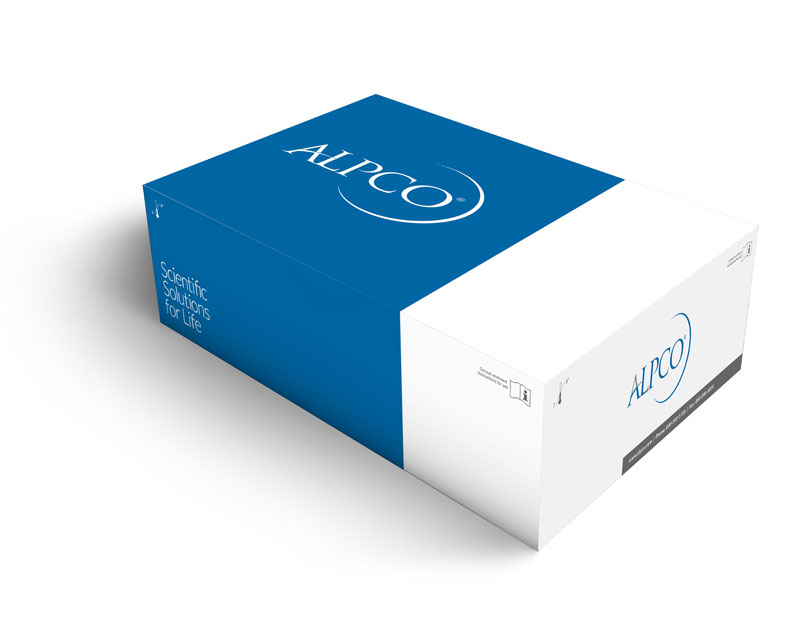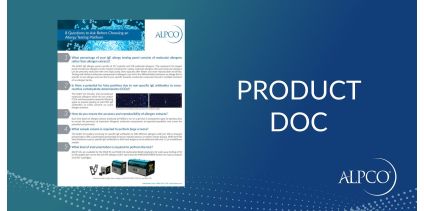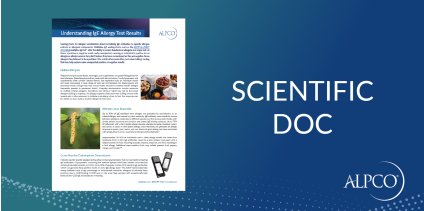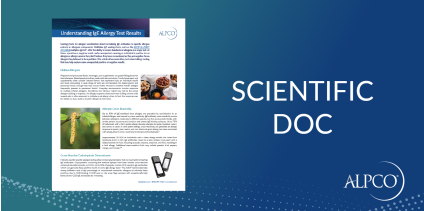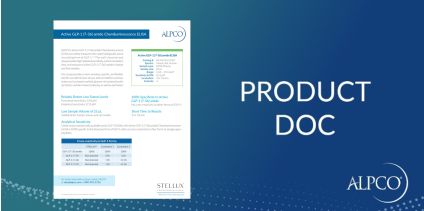Erythropoietin ELISA (EPO ELISA)
$555.00
Catalog
21-EPOHU-E01
The Erythropoietin ELISA (EPO ELISA) is a specific quantitative assay for the determination of erythropoietin in Serum. Human EPO is a heavily glycosylated protein consisting of 165 amino acids. Serum EPO levels are dependent on the rate of production and the rate of clearance of the protein. Quantitation of serum erythropoietin is useful in researching the cause of anemia or erythrocytosis. FDA Registered. For In Vitro Diagnostic Use.
Species
Human
Regulatory Status
FDA Registered. For In Vitro Diagnostic Use.
Product Distribution
Available Worldwide
Range
3 - 500 mIU/mL
Sensitivity
0.6 mIU/mL
Sizes
96 Wells
Sample Types
Serum
Inc Time Hour
2
Inc Time Minute
30
Inc Time Overnight
No
Inc Time See Protocol
No
Sample Size
400
Detection
Colorimetric
The EPO Immunoassay is a two-site ELISA [enzyme-linked immunosorbent assay] for themeasurement of the biologically active 165 amino acid chain of EPO. It utilizes two differentmouse monoclonal antibodies to human EPO specific for well-defined regions on the EPOmolecule. One mouse monoclonal antibody to human EPO is biotinylated and the other mousemonoclonal antibody to human EPO is labeled with horseradish peroxidase [HRP] for detection.
In this assay, calibrators, controls, or patient samples are simultaneously incubated with the enzyme-labeled antibody and a biotin-coupled antibody in a streptavidin-coated microplate well. At the endof the assay incubation, the microwell is washed to remove unbound components and the enzymebound to the solid phase is incubated with the substrate, tetramethylbenzidine (TMB). An acidicstop solution is then added to stop the reaction and converts the color to yellow. The intensity of the yellow color is directly proportional to the concentration of EPO in the sample. A dose-responsecurve of absorbance units versus concentration is generated using results obtained from thecalibrators. Concentrations of EPO present in the controls and patient samples are determineddirectly from this curve. The standards have been calibrated against the World Health Organization(WHO) erythropoietin international standard that consists of recombinant DNA derived EPO. TheWHO reference standard used was the erythropoietin 1st international standard (87/684).

